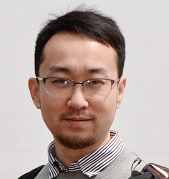Abstract
Conventional synchronous generators are gradually being replaced by inverter-based resources. Such transition introduces more complicated operation conditions and the reduction in system inertia imposes challenges for system operators on maintaining system rate-of-change-of-frequency (RoCoF) security. This paper presents a selectively linearized neural network (SLNN) based RoCoF-constrained unit commitment (SLNN-RCUC) model. A RoCoF predictor is first trained to predict the system wide highest locational RoCoF based on a high-fidelity simulation dataset. Instead of incorporating the complete neural network into unit commitment, a ReLU linearization method is implemented on a subset of selected neurons to improve the algorithm computational efficiency. The effectiveness of proposed SLNN-RCUC model is demonstrated on the IEEE 24-bus system by conducting time domain simulations using PSS/E.
Index Terms
Deep learning, Frequency stability, Low-inertia power systems, ReLU linearization, Rate of change of frequency, Unit commitment.
Cite this paper:
Mingjian Tuo and Xingpeng Li, “Selectively Linearized Neural Network based RoCoF-Constrained Unit Commitment in Low-Inertia Power Systems”, 55th North American Power Symposium, Asheville, NC, USA, Oct. 2023.

